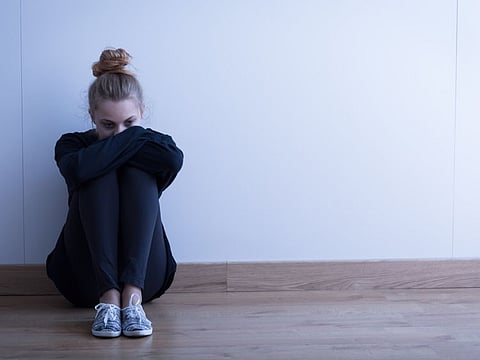COVID-19: 5 ways to get help in the UAE for your mental health
From telehealth to online counselling, here are ways to get you help or provide answers

As the coronavirus outbreak continues to destabilise people’s familiar way of living around the world, mental health and psychological well-being becomes more and more vulnerable. Many initiatives have been set up in the UAE to help you cope with any internal struggles you are having as a result of the COVID-19, in addition to those whose pre-existing mental conditions have been exacerbated by the pandemic.
We take a look at some of the ways you can reach out and get help, as well as the informational initiatives that have been set up to answer some of your general questions about how to deal with changes to your psychological well-being.
1. Call the ‘Taaluf’ hotline in the UAE to get counselling
Taaluf is a new interactive initiative that provides family counselling for all community members, via four different channels. It was launched on March 31 to mitigate the psychological and mental health impacts of Covid-19, particularly as it pertains to quarantine and social distancing.
The first channel is a hotline, available 9am until 9pm daily except for Fridays and Saturdays. You can call 800623.
The second option is ‘Taaluf’ video calls, offered via WhatsApp, with appointment bookings available through the Ministry of Community Development (MoCD) website.
In addition, you can submit your enquiries in a written form through the MoCD website.
The fourth and final channel is ‘Taaluf’ Live, which is a continuous weekly live streaming service through the MoCD’s Instagram account (@mocduae) to discuss relevant topics of interest.
‘Taaluf’ provides guidance and advice, in hopes of creating a space for positive mental health and behavioural practice during this pandemic.
2. Book a telehealth or video appointment with a psychologist at these clinics
Several hospitals and mental health clinics are now offering the option to set up a secure video appointment with psychologists and psychiatrists.
Gulf News called two clinics and found that the process is fairly straightforward. Both require you to set up an appointment, either by phone or online, with one of their available doctors.
You will be registered in their system and you will then receive a secure payment link on the email you registered under.
Once the payment is complete, your appointment is confirmed.
You will receive an invitation link to a video meeting, through applications such as Zoom (used by Camali Clinic) or Cisco Webex (used by German Neuroscience Centre).
Usually, the appointments will last between 50-60 minutes, but follow-ups can be shorter.
Your prescription, should it be needed, will also be created electronically. They will require a copy of your ID, or your passport, and the original ID document will be needed to pick up your prescription from the pharmacy, or to have it delivered if that is an option.
Here are some of the clinics and hospitals you can avail telehealth services: Lighthouse Arabia; American Centre for Psychiatry and Neurology; Prime Hospital; German Neuroscience Centre and Camali Clinic.
3. Attend free panels online, where psychologists help you build skills
Keep an eye on the official @HappyUAE Twitter account, where they have been holding various virtual talks and Instagram Live sessions, that revolve around your well-being.
On the evening of April 16, Laurie Santos, a professor of psychology at Yale University, will lead Happy UAE’s first live webinar. During ‘Life Skills for Well-being’, she will talk about dealing with relationships, combating stress and anxiety and balancing your digital life.
You can register online for webinar, which starts 8pm UAE time. Keep checking back to see their latest offerings.
4. For general questions and free advice, these professionals are helping on Twitter
Check out the #AskDXBdoctor hashtag on the Dubai Media Office (@DXBMediaOffice) Twitter account.
The Dubai Media Office teamed up with the psychologists Dr Deema Sihweil, who gives advice in English, and Dr Walid Khalid Abdul Hamid, who gives advice in Arabic, from Dubai Healthcare City.
In the form of short videos embedded into tweets, the two doctors answer several common questions that UAE residents might have, from how to deal with spousal arguments, to what to do if the pandemic becomes too surreal and overwhelming fro you.
5. Adhere to the best practices and guidelines
The World Health Organisation (WHO) released an infographic with some basic suggestions on how to protect your mental health.
These include: reaching out to your friends, family and people you can trust when you are feeling upset; maintaining a healthy lifestyle including sleep, exercise, a proper diet and social contact with loved ones via phone or online; avoidance of smoking, alcohol and other drugs to deal with emotions, but rather reaching out to a health worker or counsellor; finding a credible source to get all the facts you need to keep you physically safe; limiting your worry and agitation by reducing the amount of media coverage you are exposed to; and finally, draw on previous coping skills that have helped you manage your emotions in the past.
Sign up for the Daily Briefing
Get the latest news and updates straight to your inbox








